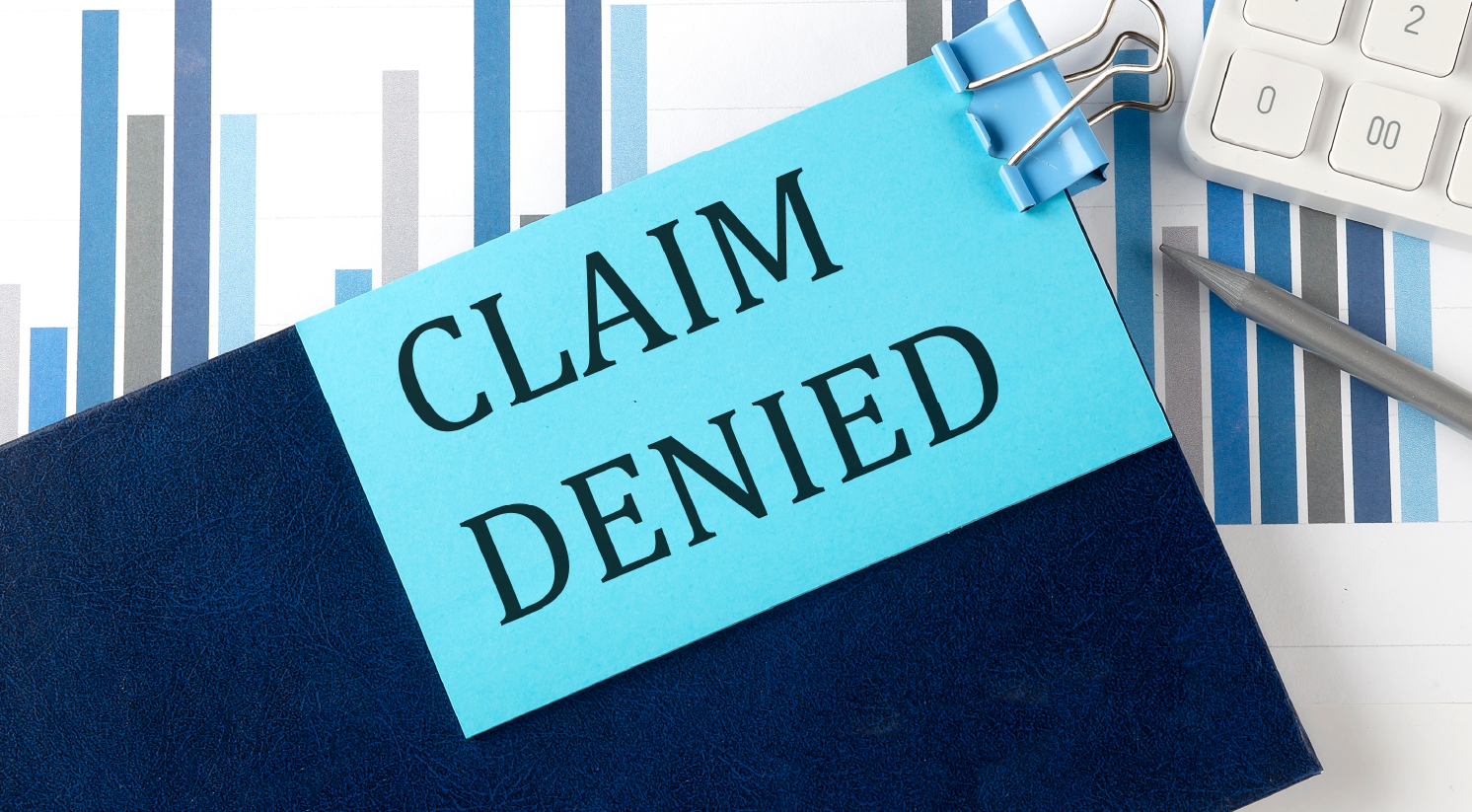Have you ever had an insurance claim denied or rejected? If so, you’re not alone. Insurance companies deny claims every day, leaving individuals and businesses feeling frustrated, helpless, and financially burdened. From car accidents to property damage to medical bills, insurance claims are a common part of life, but what happens when your claim is denied? The impact can be significant, causing stress and anxiety, financial strain, and even legal issues. In this article, we’ll explore the legal options available when your insurance claim is denied, so you can navigate the process with confidence and get the compensation you deserve.
While most insurance claims tend to be approved in our society, there are a number that will be denied. There is a range of reasons for this decision to be made, and it’s important to understand the most common reasons for this to occur.

Policy Exclusions
One common reason for denied insurance claims is policy exclusions. Insurance policies are contracts between the policyholder and the insurer that outline the scope of coverage, including any exclusions. Policy exclusions are specific scenarios or situations that are not covered by the insurance policy. For example, if a homeowner’s insurance policy excludes flood damage, any damage caused by flooding will not be covered by the policy. Therefore, it’s important to carefully review your insurance policy and understand the exclusions to ensure you have appropriate coverage for your needs.
Lapsed Coverage
Another reason for denied insurance claims is lapsed coverage. Insurance policies require policyholders to pay premiums regularly to maintain coverage. If the policyholder fails to make the required premium payments, the policy may lapse, and coverage may end. If a claim is made during a period of lapsed coverage, the insurer will likely deny the claim. It’s important to stay up-to-date with premium payments to avoid lapsed coverage and ensure that you have coverage when you need it.
Non-Disclosure or Misrepresentation
Insurance policies require policyholders to disclose accurate and complete information when applying for coverage. If the policyholder fails to disclose important information or misrepresents the facts, the insurer may deny the claim. For example, if a homeowner fails to disclose that they have a home-based business, any damage caused by the business may not be covered. It’s important to be honest and transparent when applying for coverage to avoid potential denial of claims due to non-disclosure or misrepresentation.
Late Filing of The Insurance Claim
Another reason for denied insurance claims is the late filing of the claim. Insurance policies typically specify a timeframe within which claims must be filed. If the policyholder fails to file the claim within the specified timeframe, the insurer may deny the claim. It’s important to be aware of the claim filing deadline and submit the claim as soon as possible to avoid denial due to late filing.
Lack of Documentation
Finally, a common reason for denied insurance claims is a lack of documentation. Insurance claims require documentation to support the claim, such as receipts, invoices, and any photos or videos of the damage or loss. If the policyholder fails to provide the necessary documentation, the insurer may deny the claim. It’s important to gather and organise all relevant documentation to support the claim and ensure that it can be properly evaluated and processed by the insurer.
Initial Steps to Take When Your Insurance Claim is Denied or Rejected
If your insurance claim has been denied or rejected, it’s important to take the necessary steps to challenge the decision and protect your rights. Here are the initial steps you should take:
Review the Insurance Policy Thoroughly
The first step is to review your insurance policy thoroughly, paying close attention to any exclusions, limitations, or other provisions that may impact your claim. This will help you understand the reason for the denial or rejection and whether you have grounds for an appeal. Be sure to also review the denial or rejection letter provided by the insurer, as it may contain additional information and instructions on how to appeal the decision.
Communicate With the Insurance Company to Clarify the Denial
Next, it’s important to communicate with the insurance company to clarify the reason for the denial or rejection. You may be able to resolve the issue through communication or negotiation with the insurer, especially if there was a misunderstanding or miscommunication. Be sure to keep records of all communication with the insurer, including phone calls, emails, and letters.
Gather All Relevant Documentation
Gathering and organising all relevant documentation is essential to support your insurance claim and increase your chances of a successful appeal. This includes receipts, invoices, estimates, and any photos or videos of the damage or loss. It’s important to ensure that the documentation is complete, accurate, and organised, as this will help to demonstrate the validity of your claim.
Consider Seeking Professional Assistance
If you’re having trouble navigating the appeals process or feel overwhelmed by the complexity of the situation, it may be beneficial to seek professional assistance. An experienced insurance lawyer can help you understand your legal options, provide guidance on how to proceed, and ensure that your rights are protected. They can also help you navigate the appeals process and increase your chances of a successful appeal. It’s important to choose a legal professional who specialises in insurance claims and has a track record of success in similar cases.

Legal Options for Disputing a Denied Insurance Claim
When your insurance claim has been denied or rejected, it’s important to know your legal options for disputing the decision.
Internal Appeals Process
Most insurance companies have an internal appeals process that allows you to challenge the decision. To file an appeal, you’ll need to follow the instructions provided in the denial or rejection letter. It’s important to submit all relevant documentation and information to support your appeal. Here are some tips for a successful appeal:
- Be persistent and follow up regularly with the insurance company
- Clearly state the reasons why you believe the claim should be approved
- Provide any additional information or documentation to support your claim
- Be polite and professional in all communication with the insurance company
External Review (If Available)
In some cases, external review may be available. This is a process where an independent third party reviews the insurance company’s decision and determines whether it was reasonable and based on the terms of the policy. The availability of external review varies by state and by type of insurance policy. If external review is available, you can initiate the process by following the instructions provided in the denial or rejection letter.
Mediation and Alternative Dispute Resolution
Mediation is a process where a neutral third party helps both parties reach a mutually acceptable resolution. It can be a faster and less expensive option than pursuing legal action. Finding a qualified mediator can be done through the American Arbitration Association or a local dispute resolution centre. Benefits of mediation include:
- Greater control over the outcome of the dispute
- A confidential and non-adversarial setting
- A faster and less expensive resolution process

Legal Action
If all else fails, legal action may be necessary to dispute a denied insurance claim. Hiring a lawyer who specialises in insurance claims can help you understand your legal options and provide guidance on how to proceed. Here are some key steps in the litigation process:
- Filing a complaint: This is the initial step in the process of taking legal action, where the complaint is filed with the appropriate court.
- Discovery: This is the process where both parties exchange information and evidence.
- Settlement negotiations: This is an opportunity for both parties to try to reach a settlement before trial.
- Trial: If a settlement cannot be reached, the case goes to trial and a judge or jury will make a final decision.





